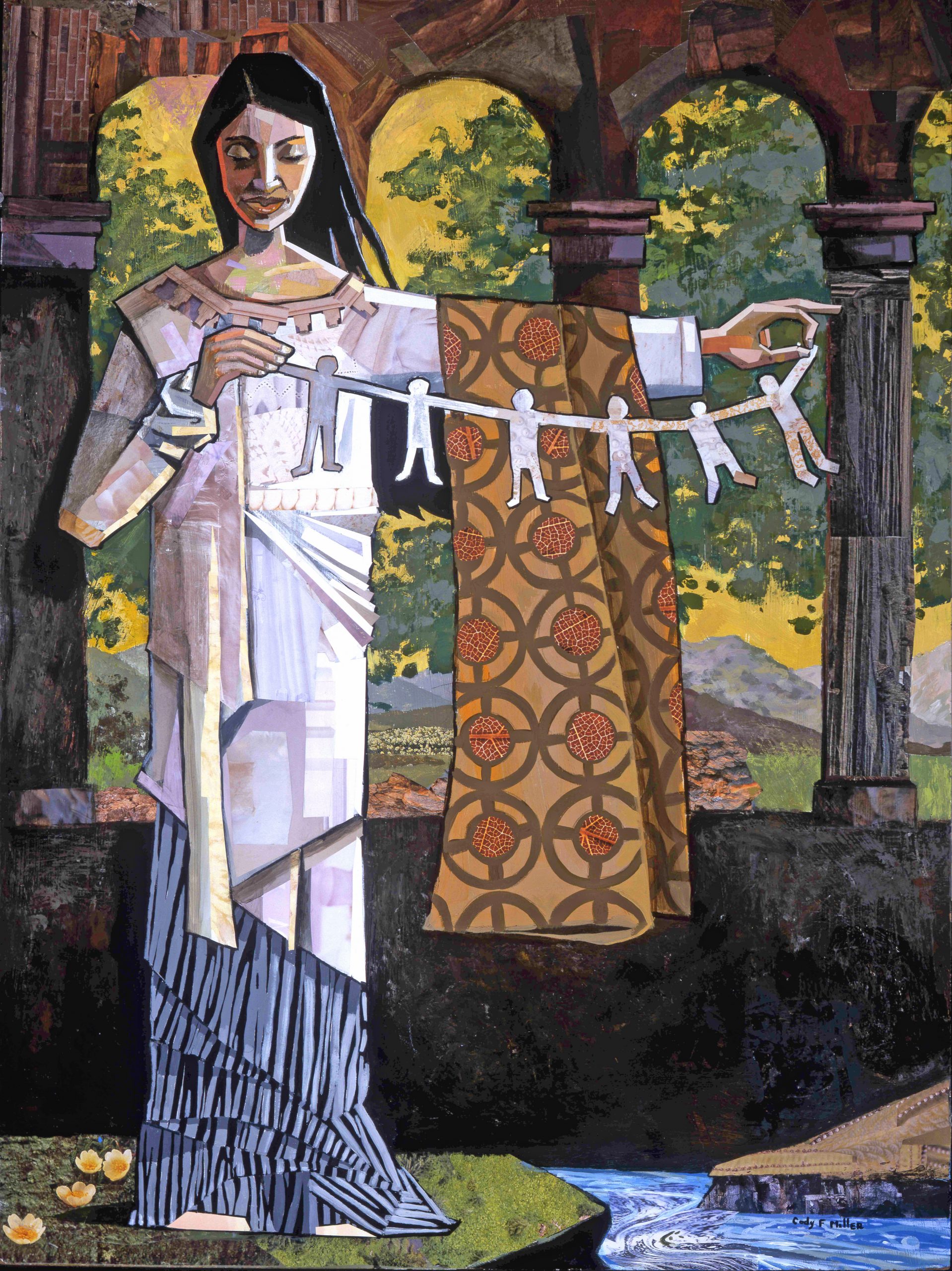What My Grandmothers Taught Me
Lesson One

Lesson One: Family Trees
Primary Scripture: Matthew 1
Once Upon a Time, I Remember When
My mother taught me to love stories that began, Once upon a time: the beautifully crafted, lovingly told children’s stories that aimed to gently lead growing children into a stronger sense of themselves in the world. Once upon a time stories helped me to understand that life would have adventure, struggle, and reversals—and that working through these challenges could be character-forming.
My father taught me to love stories that began, I remember when: the reminiscing of older family members or elderly parishioners who could tell me about how life was in their youth. I remember when stories helped me find my place in a wider world of family and community and showed me that everyone has a story worth listening to.
Imagine my delight when, as a budding biblical scholar, I had my eyes opened to the wonderful interweaving of Once upon a time and I remember when that makes up biblical narrative! Suddenly, what had been boring (snippets of tales taken out of context, loaded with needless repetitions, read with no expression on a Sunday morning by someone who stumbled over the foreign words) sprang into life as I began to understand the art of Hebrew storytelling. Those repetitions became clues in an intriguing hunt for underlying meaning. I discovered that stories had beginnings, middles, and ends, and often made sly reference to other stories that, once discovered, added even more layers of meaning to the narrative.
Interwoven with the beautiful crafting of the storyteller was the sense of family—a familiar sense from my childhood—that these stories were inviting me into a wider world in which I had a particular place.
All this beauty and invitation are there in Matthew 1! It may read like the most boring list of names imaginable but think of what that list means to someone who knows the stories behind each name and knows that these are the stories of their ancestors. For Matthew’s budding church community that was growing more and more cut off from its roots in the synagogue and felt lost in a frightening world, Matthew presented this message in the shorthand of the family tree: You have a place in a story that stretches back all the way to Abraham, all the way forward to Jesus, and on into the future through your faithful living.
The stand-out names in this family tree, are those of the women. There are only five and they have been placed deliberately to catch our attention. They are an odd five, not the names we might expect (where are Sarah, Rebecca, Rachel, Leah—the great matriarchs?). When I read these names, I remember when my father took me to visit the elderly members of our church, to hear their stories. But rather than take us to the sweet, retired Sunday School teachers, Matthew takes us to visit the immigrant woman who still struggles to speak English; or, shockingly, to the retired “woman of the night,” who is talked about in whispers in the church (accompanied by “Not in front of the children!”).
Why on earth would Matthew subject his nice community of godly people to these women’s stories? What does he imagine they can possibly learn, sitting at the feet of these ancestors?
And yet—this is how Matthew chooses to begin his “account of the genealogy of Jesus the Messiah, the son of David, the son of Abraham.” And following back to the stories of each of these women (or forward, in Mary’s case), we find the beautiful and loving hand of the storyteller that opens us to a world in which we can explore life’s meaning. What DNA might he imagine they passed on to their great, great, great . . . (add as many as you think appropriate) grandson, Jesus? Or to us who follow in the way of this Jesus?
As we read, I invite you to listen with me for the Once upon a time of the storyteller as it interweaves with the I remember when of the family. Like Matthew’s community, this family is now our family. We take on the memories and struggles and the character-forming foundation that are found beneath the names, and we make them our own by reflecting on the ways our lives find echoes of the lives of these grandmothers.
Merryl L. Blair
author of the 2021-2022 PW/Horizons Bible Study
******
Purchase a What My Grandmothers Taught Me bible study book and study along with us.
Call 800/533-4371 and order product #HZN21100 or order online
